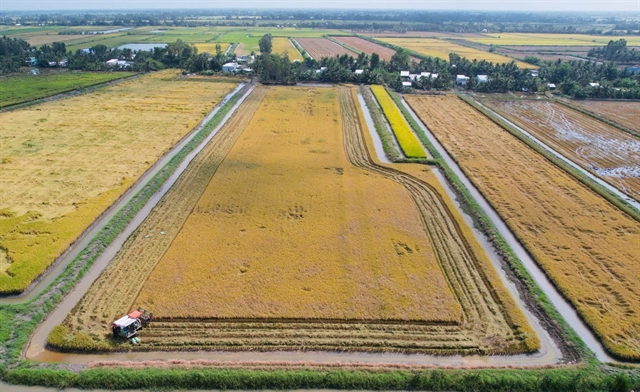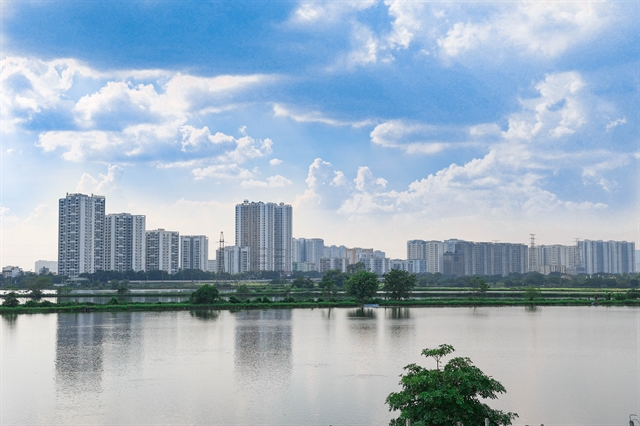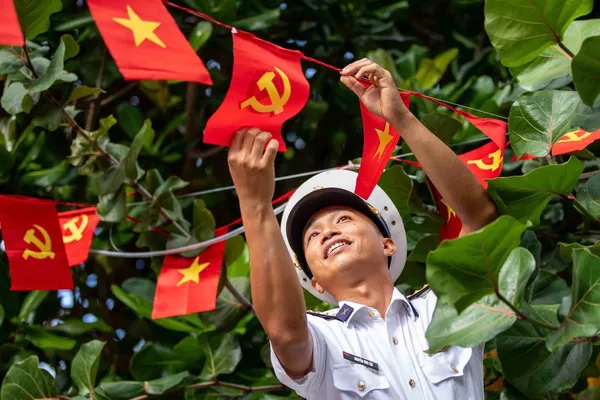 Op-Ed
Op-Ed
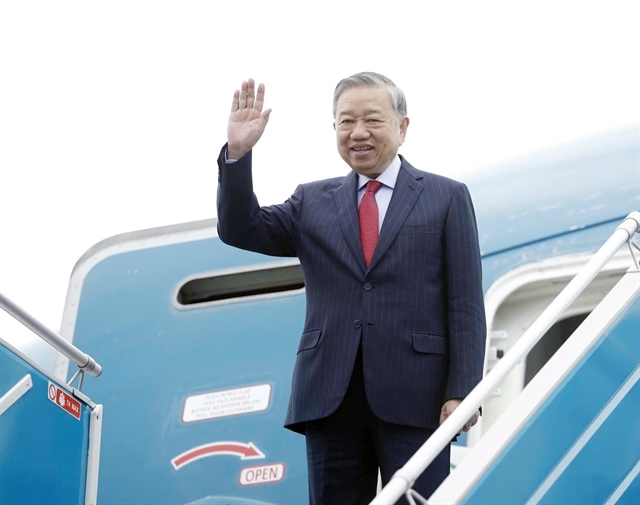
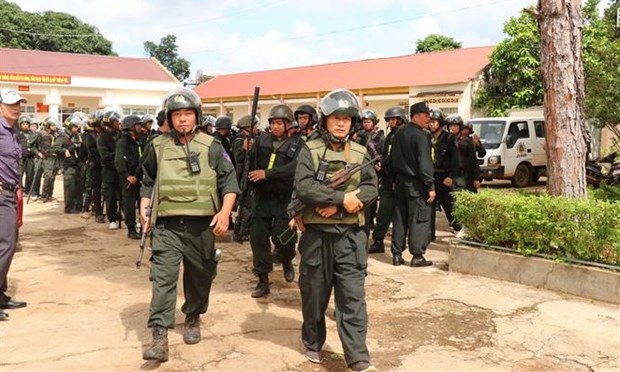 |
| Police are deployed to hunt those responsible for the June 11 attacks on the headquarters of two communal administrations in Cu Kuin district, Dak Lak province. VNA/VNS Photo |
The sabotage by hostile forces, bullets intended to drive a wedge into the great national solidarity, failed to pierce through the firm shield of the truth and people’s solidarity.
The armed attacks on the headquarters of the People’s Committees of Ea Tieu and Ea Ktur communes of Cư Kuin District, the Central Highlands province of Đắk Lắk, early on June 11 caused heavy human losses and negatively affected local security and order. As soon as the incidents happened, much wrongful and distorted information emerged on social networks and Vietnamese-language versions of foreign newswires, while investigations later revealed those attacks were organised terrorist acts.
Such broadcasting agencies as RFA, BBC, and VOA cited biased opinions of some people and political observers who said the June 11 incidents were triggered by prolonged land disputes and racial tensions that now surge in the Central Highlands. Those pages posted such reports as “the Central Highlanders were robbed of their land” or “isolated” so they had to rise up, and blamed administrations for the incidents.
RFA even quoted Y-Duen Buondap, head of the so-called Degar Central Highlands – an organisation based in North Carolina of the US, as declaring that he would report the "human rights violations" to the United Nations and the US Government.
The flow of wrongful and harmful information poses latent risks of causing social instability while stirring public concern, impacting the lives of local residents and hampering investigations. Such writings were unable to conceal their ill intentions of inciting contentiousness and driving a wedge into the great national solidarity among ethnic groups in Việt Nam.
Meanwhile, fake news about the incidents also appeared on social media. A number of images and videos have been manipulated with the aim of stirring up anxiety among the public and inciting criticism of local administrations and the State.
However, the truth is a total contrast to what hostile forces are attempting to propagandise.
Local residents and the majority of Vietnamese people have voiced their outrage at the cruelty of the culprits. Many village elders and reputable people from ethnic minorities in the Central Highlands have strongly condemned the acts of disturbing security, striking the headquarters of the communal state agencies, and barbarously killing police officers, communal officials and civilians. Religious dignitaries and followers have expressed their discontent over the arguments intended to sow division by some based abroad.
Local people have grieved the fallen officers, cadres, and compatriots and also actively provided information for authorities to serve the hunt for those launching the attacks.
Thanks to support from locals, authorities quickly arrested all the ringleaders, and 74 people involved in the incidents have been put into temporary detention as of June 20.
The arrested confessed that they had been induced by the promise of money and assets after committing the acts. Among the arrested was a member of a US-based organisation, who had received orders from this organisation to intrude into Việt Nam and stage the attacks.
The solidarity and consensus of ethnic groups in Đắk Lắk Province proved that the false allegations of racial and religious conflicts are completely groundless.
Residents in Cư Kuin District and the Central Highlands have been joining local authorities in socio-economic development programmes for mountainous, remote, and disadvantaged areas launched by the Party and the Government.
The Party and State’s care for ethnic minority groups and those in the Central Highlands can be seen in the implementation of the policies prioritising economic development and social security in each hamlet and village.
Though certain difficulties remain, Đắk Lắk and other provinces in the Central Highlands have recorded hundreds of communes meeting new-style rural area standards, more than 90 per cent of the population accessing hygienic water, 100 per cent of the communes and 99.39 per cent of the hamlets and villages accessing electricity, all the provinces in the region having universalised junior high school education, over 95 per cent of children in the eligible age group going to school, and 100 per cent of communes have health stations (with 67 per cent of the communes meeting national healthcare standards).
A large number of fruit farming zones, hydropower and solar power plants, schools, health stations, places of worship, projects on developing local culture and roads have also taken shape.
Aside from thwarting reactionary and exiled forces’ plots to take advantage of religious affairs for sabotage purposes, all-level authorities have also created favourable conditions for religious activities, helping people practise their belief and religions and also preventing the abuse of religious affairs.
All of these shed light on the Party and State’s efforts to develop the Central Highlands so that no one is left behind. They also prove the fact that sabotage arguments under the pretext of democracy, human rights, religion, and ethnic affairs are sheer fabrications.
By now, the security and order situation in Đắk Lắk and the Central Highlands has stabilised, and lives returned to normal. The increasingly improved quality of life of local residents and the solidarity of ethnic groups in the province and across Việt Nam constitute the strongest response to the sabotage arguments, and also a strong shield and fortress in the fight against plots and ruses by hostile and reactionary forces and criminals. VNA/VNS

.jpg)
